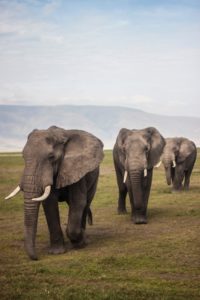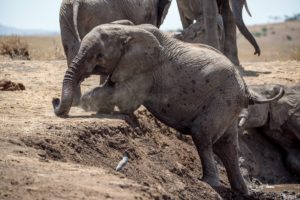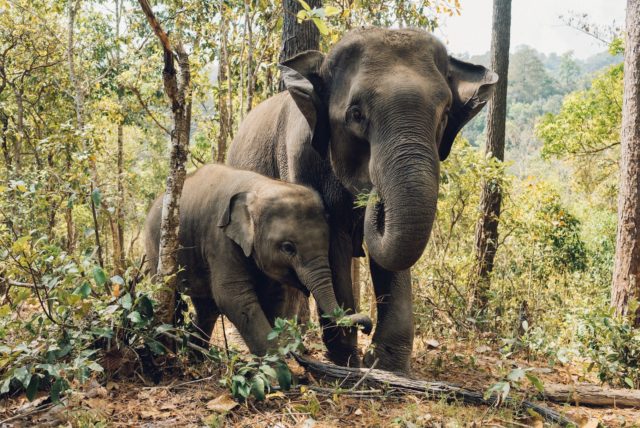 Elephants are remarkable animals for many reasons, but a particularly interesting one is that they almost never get cancer. Author Matthew LaPlante has said that this biological phenomenon actually does not really make any sense. According to LaPlante, because elephants are such big animals, it means that their cells have to divide more quickly. Usually, animal cells divide quickly, it makes it easier for cancer to spread in their bodies. This is one of the reasons he loves to study elephants. Their extremely low rate of cancer is practically nonsensical. He explored it further in his book, Superlatives: The Biology of Extremes.
Elephants are remarkable animals for many reasons, but a particularly interesting one is that they almost never get cancer. Author Matthew LaPlante has said that this biological phenomenon actually does not really make any sense. According to LaPlante, because elephants are such big animals, it means that their cells have to divide more quickly. Usually, animal cells divide quickly, it makes it easier for cancer to spread in their bodies. This is one of the reasons he loves to study elephants. Their extremely low rate of cancer is practically nonsensical. He explored it further in his book, Superlatives: The Biology of Extremes.
Elephants have been a mystery to many throughout their history on Earth. Researchers and scientists cannot figure out how elephants managed not to get this terrible disease. When cells start to divide, they have a chance of mutating. Some of these cells can mutate into a cancerous form when they divide. Many of these divisions occur in an elephant because it grows from a very small embryo into an animal that weighs several tons. So it is very odd that an animal undergoing many cell divisions almost never gets a cancerous mutation.
So how do elephants stay away from the disease?
 LaPlante says that the reason elephants can avoid these cancerous mutations is that they have a gene that humans do not have. This gene causes any cells that mutate in the elephant to commit suicide. As a result, cells that undergo a cancerous mutation when they divide end up killing themselves, and the elephant does not get cancer. Elephants would not be able to grow as big as they do without this gene, according to LaPlante, because they would be at an incredible risk for cancer during cell division. This gene allows them to grow so large.
LaPlante says that the reason elephants can avoid these cancerous mutations is that they have a gene that humans do not have. This gene causes any cells that mutate in the elephant to commit suicide. As a result, cells that undergo a cancerous mutation when they divide end up killing themselves, and the elephant does not get cancer. Elephants would not be able to grow as big as they do without this gene, according to LaPlante, because they would be at an incredible risk for cancer during cell division. This gene allows them to grow so large.
Can we apply this research to humans?
Scientists are now hopeful that understanding how this elephant gene works could lead to new treatments for humans. There is a research team at the University of Utah that is currently doing experiments with human cells to see if the elephant’s gene can be applied to stop cancerous mutations. They are doing these experiments at Schiffman Lab on the University campus.
LaPlante says these experiments are in their very early days, but the results could be exciting. Essentially, the scientists have human cancer cells, and they teach them how to act like the elephant cells would. So when the human cells undergoes a mutation, it learns to kill itself instead of growing even larger and becoming a tumor.
LaPlante also says the most exciting part is that this treatment has worked against every cancer they have tried it with, even though many cancers are very different. Most treatments are specific to certain kinds of cancer, but this treatment seems to be all-encompassing. This means that it could be the way to finding a “cure” for most cancers by teaching the cells in the body to kill off any bad mutations.




























